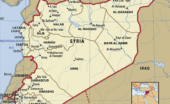Johannah Bernstein post: "eternally proud of my father’s extraordinary aeronautical engineering. legacy. here is a photo of the Canadair Water…
Wednesday Night #1777
Written by Diana Thebaud Nicholson // March 23, 2016 // Wednesday Nights // Comments Off on Wednesday Night #1777
 Just as we were prepared to send off a suggestion of a relatively wonkish, if not upbeat, topic, came the awful news of the ISIS attacks in Brussels.
Just as we were prepared to send off a suggestion of a relatively wonkish, if not upbeat, topic, came the awful news of the ISIS attacks in Brussels.
More than 30 people are dead and more than 200 wounded after explosions struck Brussels during the Tuesday morning rush hour, Belgian officials say. Two blasts hit the international airport; another struck a metro station. Belgium has issued a Level 4 alert, denoting “serious and imminent attack.”
We are following closely (NPR is doing a great job), but as WN is not likely to be able to do anything about it, we will pursue the Budget topic and look forward to your wisdom.
Happy Spring!
Spring has made its earliest appearance in 120 years. The vernal equinox, which marks the Sun’s passing from the southern hemisphere to the north, on March 20, was spring’s earliest start since 1896. Please note, this has nothing to do with climate change.
THE hot topic for Wednesday Night will be the federal budget, largely devoted to the details, as most of the grandes lignes were already known, as The National pointed out on Monday. Infrastructure is a major focus, but at least for the first couple of years, not particularly sexy projects – and not many ribbon cutting photo ops. There’s a great need for major repairs and maintenance – we have only to look at Halifax’s 2,000 kilometres of aging water and sewer pipes that are in need of $2.6B of work (Canada’s ‘neglected’ waste water infrastructure needs billions to fix) and consider the water crisis that has plagued the city of Flint
Coincidentally – or not – David Suzuki reminded us that the federal government will deliver its first budget on March 22 — World Water Day. He continues “Canada is the only G8 country, and one of just two OECD countries, without legally enforceable national drinking-water-quality standards. Federal water policy is more than 25 years old and in dire need of revision. We have no national strategy to address urgent water issues and no federal leadership to conserve and protect water. Instead, we rely on a patchwork of provincial water policies, some enshrined in law and some not. Meanwhile, highly intensive industrial activities, agribusiness and pollution are putting water supplies at risk.”
Former Bank of Canada governor David Dodge, among other experts, has argued that low interest rates make this a superb time for government to borrow to pay for the sort of infrastructure that pays off by making the economy more productive. However, Mr. Dodge has also said the important thing for Finance Minister Morneau is to stay focused on the government’s long-term economic goals.
In advance of the pouncing pundits (better than nattering nabobs), we invite you to formulate your own thoughts with a view to sharing them on Wednesday Night. And, please, don’t forget last week’s Quebec budget, which seems pretty promising, but relies heavily on federal monies. Quebec budget: $2B surplus planned but $10B coming from federal equalization
Friday’s announcement of the seven new senators was generally greeted with applause. The process that led to their selection, while missing one of the Es from Triple-E, sounds pretty transparent and certainly an improvement on a number of past appointments. An independent advisory board chaired by Huguette Labelle, a former federal deputy minister and chair of Transparency International, was responsible for developing a pool of candidates. The board included representatives of the provinces where the vacancies existed. All good, but we are not alone in wondering how all these independent senators are going to function. We hope that Peter Harder, the Liberal government’s new leader in the Senate, counts herding cats among his many other qualifications!
Things are not shaping up for an easy time for Tom Mulcair at the NDP Leadership review next month. Last week’s At Issue devoted almost as much time to the Party’s revolt as to the budget – maybe because the outcome was less certain? Whether or not he might like to step away, we are sure that a public rebuke by the Party would be a harsh blow.
Conservatives, meanwhile, are steering a fairly predictable course and are in no hurry to launch a leadership contest. We hope that before they do, they will heed the wise words of our favorite Red Tory (well, one of two, the other being Joe Clark). In a tightly argued piece in the Globe & Mail, Hugh Segal writes: If there is to be a viable and modern centre-right set of humane policy choices in a truly competitive election, Conservatives have much work to do that precedes, and is more important than, choosing the next leader.
First, they must sort out exactly what defines the underlying principles and policy framework that express modern conservatism. A publicly funded political party is neither a private organization nor a self-referential debating society. Its first duty is to the public. For example, whatever those who worked on last year’s election campaign may want to believe, the campaign was not serious, constructive or respectful of the Canadian voter. Hugh Segal: The biggest questions for Tories aren’t about a new leader
We might take a bit of a holiday from U.S. politics this week, though, inevitably the subject will be raised [Note: Bernie Sanders and Ted Cruz each notched victories in Tuesday’s Western contests, but Hillary Clinton and Donald Trump won big in Arizona]. However, a nod to President Obama’s trip to Cuba is in order. Gwynne Dyer’s Obama in Havana pretty much says it all – and without pontification. On Wednesday and Thursday, he will be in Argentina on the 40th anniversary of the beginning of The Dirty War and is expected to formally begin the declassification process of U.S. military, intelligence and law enforcement files about that period. The timing of the trip is controversial and it is to be hoped that it will not prove to be a mistake, as a number of presidential trips to Latin America have been.
Have you been following the crisis in Brazil? The goal posts shift from minute to minute, but we have tried to keep tabs on events – see Brazil 2013 – 2016. Brazilian friends tell us that so far the most accurate reporting can be found in The Guardian.
On the other side of the Atlantic, the EU has made A controversial and ambitious migrant deal agreed between the European Union and Turkey went into effect Sunday. Under the pact, migrants arriving in Greece will be sent back once they have been registered and their individual asylum claim processed. In return, the EU will take in up to 72K refugees directly from Turkey and reward it with some €6B ($6.8B) aimed at improving the lives of 2.7M Syrian refugees currently living in the country. At the same time, The European Union has linked advancing Turkey’s membership bid to a settlement of the decades-old Cyprus dispute. Following a preliminary EU-Turkish migration deal last week, Cypriot President Nicos Anastasiades threatened to veto Turkey’s accession talks unless Ankara meets its obligation to open its ports and airports to Cypriot traffic, effectively recognizing his state. Although the migrant deal is probably the best choice available, we can only agree with Der Spiegel ‘s assessment that by doing so, Europe is strengthening President Erdogan’s position as he transforms his country into a Putin-style autocracy [Dangerous Liaisons].
There is much, much more to explore, but while we encourage you to follow many topics, we really must focus on the Budget!
And here is an intriguing suggestion for your personal travel budget.
10 Awesome Airbnb Trailers for your next Weekend Getaway



